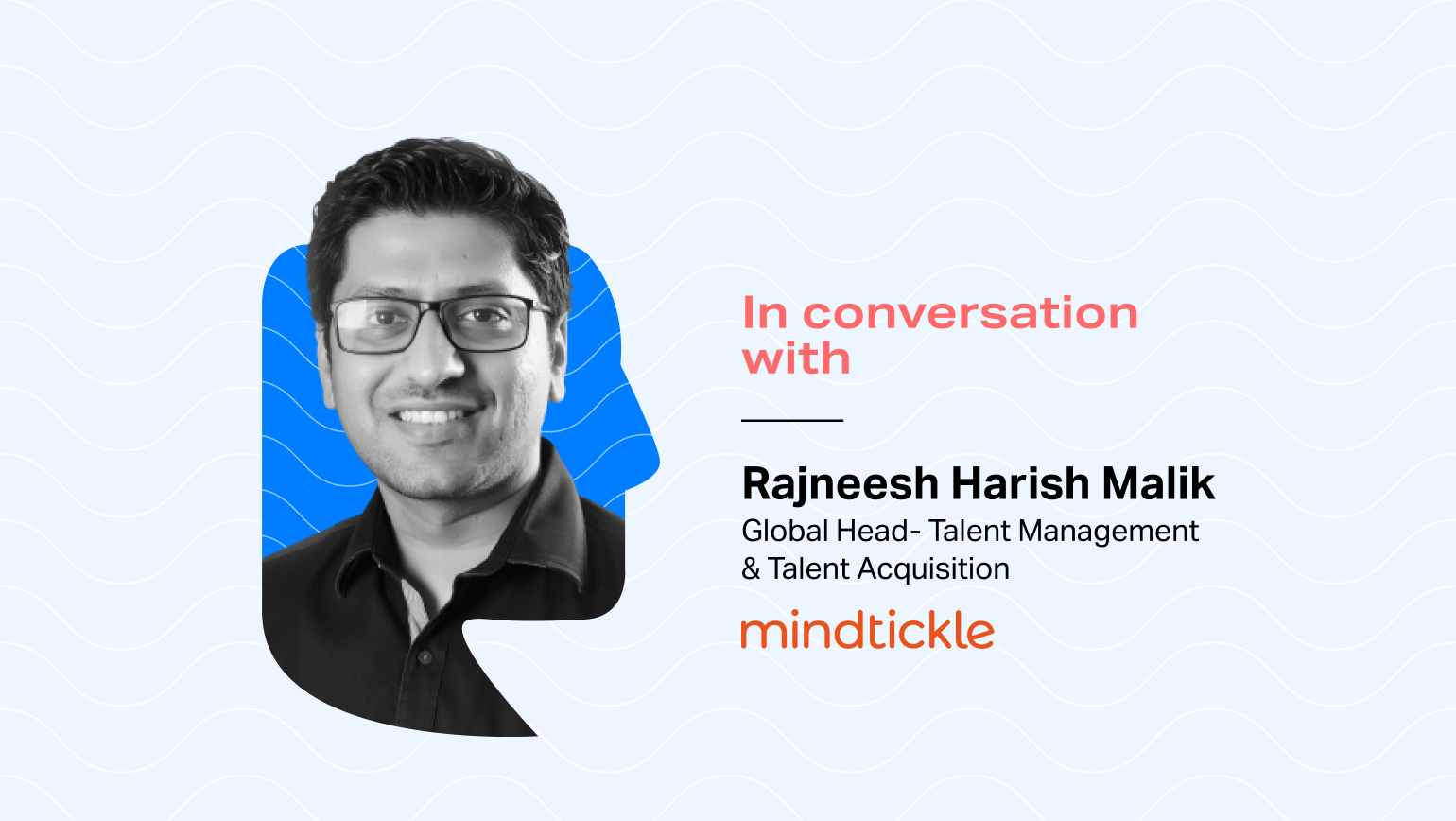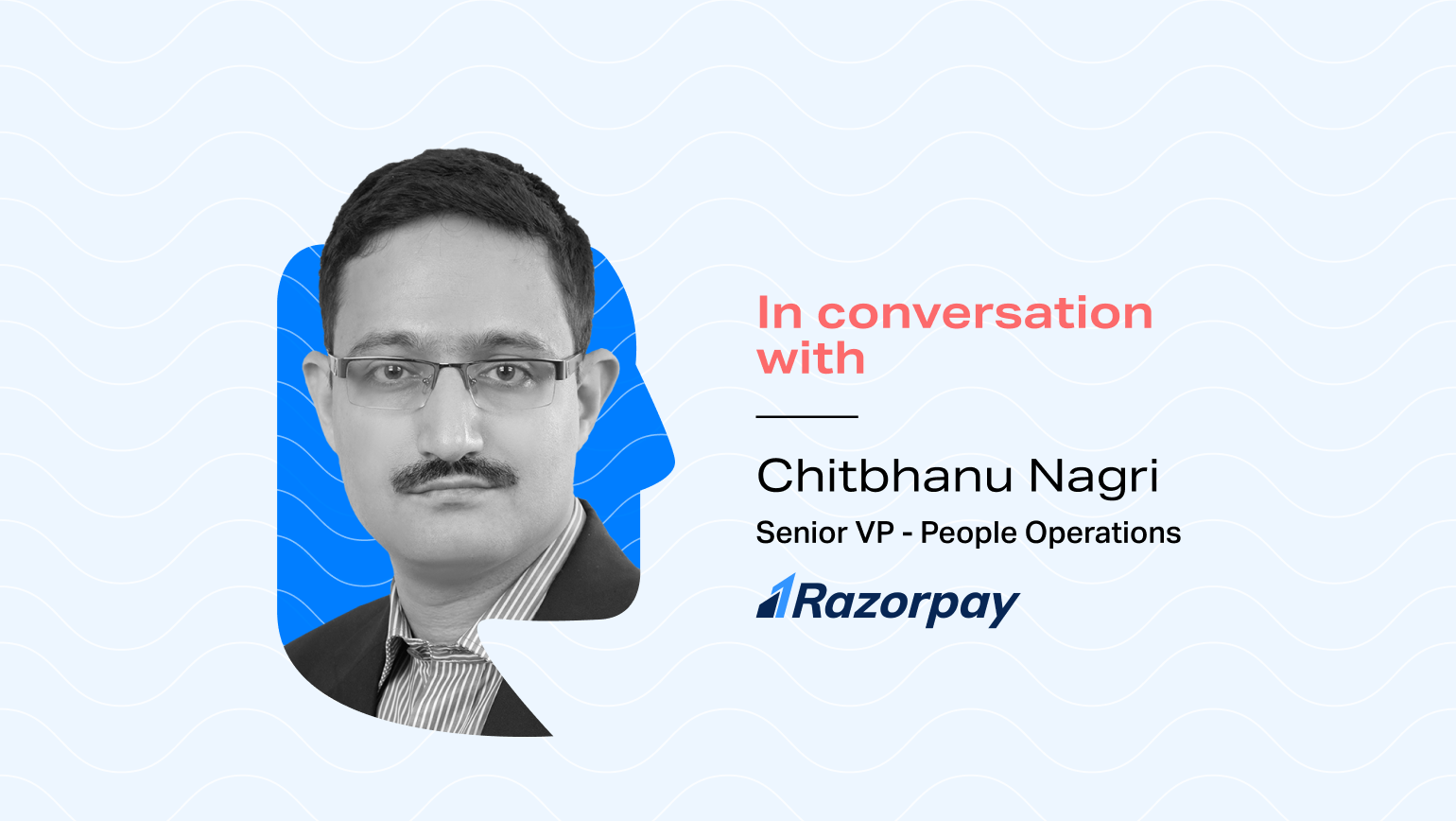 With Swaminathan Subramanian President & CPO, Reliance Capital
With Swaminathan Subramanian President & CPO, Reliance Capital
Importance of understand workforce mindset
In this episode he talks about Talent Management & Development, not bracketing people by generations or age, but by understanding their wiring and mindset and much more.
Transcript
Hi, Swami. Thanks for being a part of, Dialogue with Darwin, as, as you know, we, we talk about talent and everything around it, but let me start with asking you something about, what we shouldn't do in this interview. So and, the question basically is, what is that one cliched question you always get and you are bored of answering?
So first of all, nothing major, but yeah, I mean, you know, if you want a cliched answer for, for an interview purposes. Yeah. I mean it's, it's very people dependent, the whole industry and, particularly from where I come from, which is financial services, talent walks in and walks out of the door and people join. People, people leave. You don't know when there's an exodus of talent and the best played plans would go for a toss when that happens. But you can't avoid it, but you plan for it.
Yeah, and I guess a lot more attention as there are work and areas of work, which are getting more automated and becoming more AI driven, there is a lot of work is happening and some of us who are wholeheartedly participating in this, who by the way, fortunately, unfortunately have an engineering degree as a first degree , who are also trying to do the same thing, is been 21 years still and I'm trying to grapple with if there is anything still, which is a, which is a data driven predictor as yet, but looks like we might come close to Yureka moments soon.
And what's worked for you? I think planning, succession planning has worked very well for me. Nobody's ever ready for the next job. Nobody. You go and ask around the place somebody lack something. Previous role, I was leading a large rural business, you know, in India. We actually lost a number one, number three and number four of the business in rapid succession. And what happens when one, three, and five. Got it. You do a two. Two is it, It lasts for a few months because then he is following the one elsewhere because people join people, then you gotta look diagonally somewhere else.
Okay. But what's interesting is, you talked about succession planning, right? And there is business and there is HR. Yes. , how do you combine these two to get to the right kind of profiles or succession plans?
I never believed, Okay. At least in recent 10, 12 years being in leadership role, Never believed in writing Job descriptions. Ooff late with the changing complex environment that we work in, there is a one line job description which says, whatever it takes. So there is a job description called whatever it takes to do the job. And that happens through thorough understanding and observation around people. When I see resumes, I see patterns, I see behavioral patterns.
Um, I see success patterns, failure patterns in people and to be able to, and that's the closest in terms of analytics that you, we can bring on the table. Yeah. It's all about first identifying that this will work and the most important bit is getting your arguments through to say Correct. This will work as it, Yeah. Yeah. And, and more often than not, this point I made earlier, the institutional knowledge has been my Trump. Yeah. And, and it is what.
You, you lead like large workforce. Yes. Right. And across the board there'll be about different generations or the cultural context in, which these two generations grew up are very, very different. How do you think about talent management or performance evaluations in this context?
I would want to take age out of this equation because often when you talk generations, I, people tend to refer to age. Hmm. And I'm not too sure, and that probably conversation was relevant a few years back. I don't think it's an age thing anymore. It's a mindset thing. Correct. And more recently, I've handled people who are first time, first time who worked in a corporate world, like, you know, and, and that too, deep down in rural India where they actually are, sometimes not interested in a job. If you go to Surat and most parts of Gujarat, again, this wiring is important.
They've been schooled from when they were toddler. To actually be businessmen. I think it's about practice. If you hit the streets, you meet different people and you need to cut your, talent management strategy to the type and mindset and the wiring of individuals rather than a generational bucket.
I've stopped now bucketing individuals and generational buckets. Hence, processes and policies will have to be very tailor made because it's becoming like a market for an individual rather than for a workforce in some cases. So even in Reliance, the way we have approached, performance management and talent development has been very, very tailor made to the kind of work forces.
When you look at the global scenario and India slash Asia in, in the context of that, there is a little bit of apprehension around how much feedback somebody is ready to take on the face. Right. And this could be from reportees, this could be from peers. Yes. The top down style of feedback has always been existing but thinking about how the reportee can give their leaders feedback or their peers can give feedback, what has been your experience in this regard? Have you tried something on that front?
In India, the word feedback seems to have over a period of time, gathered a negative connotation. So I, for a moment, we leave the word feedback aside. It's about, let's call it reinforcement, right? Every behavior will have to be conditioned. You get a reward for something, you get a frown or a slightly higher voice on something else, and then it's, and then you're set. Many of my learnings, over the companies has been to say, Eh, you should have absolutely minimum acceptable standards where you keep a very firm hand on.
Okay? And largely this has got to do with ethics, about organizational integrity of processes. So the more efforts that organization place on rewarding, recognizing success. or the right behavior, will give you better mileage than organizations trying to say, Here is my bottom 20 or bottom 30, and all of that. I guess that's the big debate on bell curving and all of that happen. I, I'm a big believer in instantaneous recognition of something. Hmm, you got to cut your cake on your birthday. It can't be two weeks. Yeah. Otherwise there's no fun. So in the same way, there is something somebody's ecstatic about and wants to party that evening.
And you wanna make that happen in a small way. It doesn't have to be a big one, it has to be a small way. And there is satisfaction, You won't believe me, that the, the people who are very hungry for positive strokes are actually the CEOs. But no, in my experience, or thus far, it's always been them asking me to say, Do you think I'm valued. Mm-hmm, do you think, um, you know, someone's going to give me audience, if I were to approach, do you think this will go through? So to be a friend at that level and to be actually say, you know, this is what I hear about you, and I think that's good. You don't even know how much you're valued. Why don't you just walk us and ask for it? Yeah. Are those undocumented, um, non-linear stuff? Correct. That works very well.
Thank you so much. So much. Thanks a lot Talking. Pleasure talking to you too as well. A lot of insights, including in institutional context is something I'm taking away from this conversation. Thank you so much. Thanks so much. Thanks for having me over.
Nominate Myself
Nominate Someone Else
Your Sunday Watchlist
 With Rajneesh Malik
With Rajneesh Malik
Global Head- Talent Management & Talent Acquisition, MindTickle
In this interview, he talks about various aspects of organizational culture, hiring, his views on the importance of putting people at the heart of the business, and much more.
 With Augustus Azariah
With Augustus Azariah
Employee & Labor Relations Leader at Kyndryl
Listen to his insights on the ‘Future of Work,’ that much-debated topic – hybrid work, talent management and much more.
 With Chitbhanu Nagri
With Chitbhanu Nagri
Sr VP of People Operations at Razorpay
Listen to his insights on organizational culture, talent retention, and some learnings from his current role at Razorpay.
 With Priya Chakravarty
With Priya Chakravarty
Sr Director HR in Essar Capital
Listen to her insights on managing a distributed and diverse workforce in the hybrid work setup, and some interesting HR initiatives at Essar Capital.






